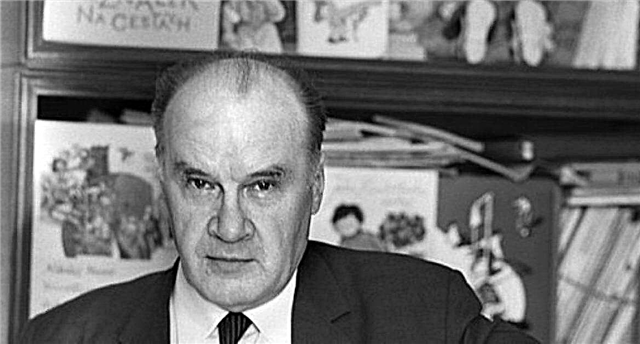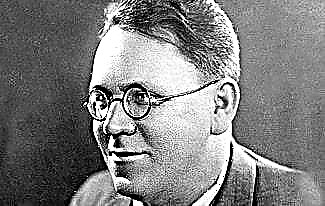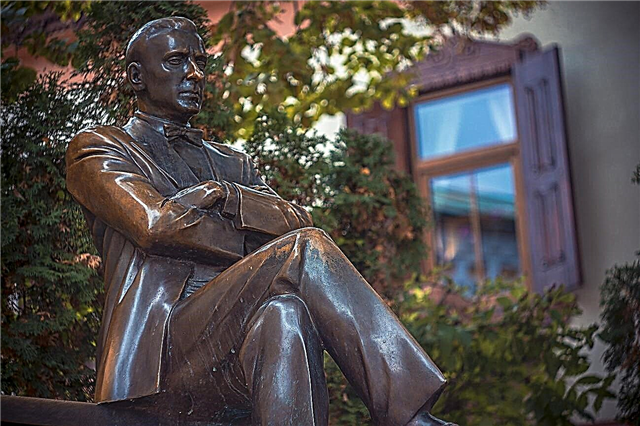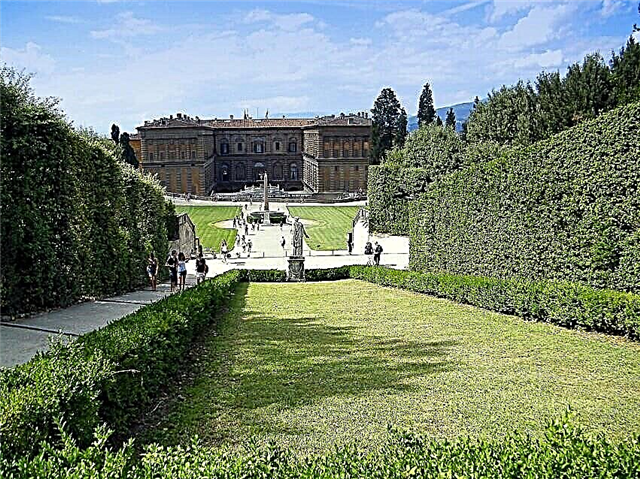The philosopher and educator Voltaire (1694 - 1778) was not a luminary in any of the branches of science or art in which he was engaged. He did not put forward his own philosophical ideas or concepts. Voltaire was far from discovering natural science. Finally, his poetic, dramatic and prose works cannot be compared with Boileau or Corneille. However, Voltaire's ability to express his own or others' thoughts in a clear, living language, his firmness and directness, popularity and accessibility made him the largest popularizer of the general history of philosophy and culture.

At the same time, Voltaire did not deal exclusively with general issues of philosophy, science and culture. The writer actively participated in, in his opinion, unjust trials, helping the defendants financially and legally. On his estate in Switzerland, he gave shelter to dozens of French émigrés. Finally, Voltaire supported talented young actors and writers.
1. For the first time the pseudonym "Voltaire" appears on the tragedy "Oedipus" staged and published in 1718. The real name of the author is François-Marie Arouet.
2. Voltaire, thanks to his godfather Abbot Chateauneuf, got acquainted with the criticism of religion earlier than with its postulates. The elder brother of the little free-thinker was a sincere believer, for which Voltaire composed a lot of epigrams on him. At the age of seven, Voltaire touched visitors to aristocratic salons by reciting opposition verses by heart.
3. Among the poetic heritage of Voltaire there is an appeal by a disabled soldier with a request to assign him a pension. The soldier asked the young student of the Jesuit college to write a petition, but he received almost a poem. However, she drew attention to herself and the disabled person was given a pension.
4. Voltaire's education in a Jesuit college refutes the horror stories about the all-pervading Jesuit hand. The free-thinking of the pupil was well known to the teachers, but they did not take any repressive measures against Voltaire.
5. Voltaire was first repressed in 1716 for comic (from his point of view) couplets about the deceased King Louis XIV and the regent who had assumed power. The poet was sent to the castle of Sully, located not far from Paris, where he had fun with like-minded people and like-minded people.

Sully Castle. Suitable place to link
6. The first "term" in the Bastille Voltaire, as the character of one famous Soviet film said, "lifted himself from the floor." He wrote the next couplets, in which he sweetly accused the Regent of Orleans of incest and poisoning. The author of the verses was not known, but Voltaire, in a private conversation, furiously argued to an unspoken police officer that it was he who wrote the verses. The result was predictable - 11 months in prison.
7. Already at the age of 30, Voltaire was considered the main French writer of our time. This did not stop the cavalier de Rogan from ordering the servants to beat the writer right on the porch of the high-society salon. Voltaire rushed for help to those whom he considered friends, but the dukes and counts only laughed at the beaten commoner - reprisals with the help of servants were then common among the nobility. No one believed in Voltaire's courage, but he still challenged the offender to a duel. De Rogan accepted the challenge, but immediately complained to his relatives, and Voltaire again went to the Bastille. They released him only with the condition of leaving France.

Bastille. In those years, writers were not afraid of criticism, but these walls
8. Voltaire's book "English Letters" was considered by the Paris Parliament. Parliamentarians, for the fact that the book was contrary to good morals and religion, sentenced it to burning, and the author and publisher to the Bastille. It was difficult to come up with the best advertising campaign in those days - a new circulation was immediately printed in Holland, and the book rose sharply in price - the readers had not yet thought of pursuing it. Well, Voltaire hid from the Bastille abroad.
9. The most successful work of Voltaire must be considered the drama "The Princess of Navarre". She is not always included in the list of the main works of the writer, but an excellent fee was received for her: 20,000 francs at a time, a place as an officer of the royal court and election to the French Academy.
10. Voltaire was a very successful financier. In France in those years joint-stock companies and companies were created and burst in dozens a day. In 1720, even the State Bank went bankrupt. And the writer in this wise water managed to make up the beginning of his rather large fortune.
11. The history of the Marquis de Saint-Lambert, also an academician, speaks about the customs of that era in general and Voltaire in particular. For 10 years Voltaire was the lover of Emilie Du Chatelet, and everywhere Emily, Voltaire and her husband lived together, not hiding their relationship. One fine day Saint-Lambert replaced Voltaire in the heart of Emily, who was 10 years older than him. The writer had to come to terms with the fact of betrayal, and with the fact that everyone continued to live together. Later, Voltaire was avenged - Saint-Lambert in the same way recaptured his mistress from one of Voltaire's main literary rivals, Jean-Jacques Rousseau.

Emilie du Chatelet
12. Voltaire got his first home of his own only after 60 years. After moving to Switzerland, he first bought the Delice estate and then the Fernet estate. It was not about money - the writer was already a well-to-do person. The position of Voltaire, with his freethinking in all monarchies, from time to time became very precarious. Real estate was worth buying only in republican Switzerland.
13. At the time of purchase, the Ferne estate had eight houses. Voltaire breathed new life into him with his money and efforts. At the end of his life, 1,200 people lived in Fern, whom the writer built housing and gave money for the establishment. Many of the settlers were watchmakers. The Russian Empress Catherine, who corresponded with Voltaire, bought hundreds of watches from them.

Fernet. A place where not only Voltaire was happy
14. Voltaire published his polemical and propaganda works not only under his own name and pseudonyms. He could easily sign a pamphlet with the name of a deceased and even still living famous person.
15. Before his death Voltaire did not confess, so his nephew, Abbot Mignot, quickly and secretly buried his uncle's body in his abbey. The prohibition to bury an atheist in consecrated ground came too late. In 1791 Voltaire's remains were transferred to the Parisian Pantheon. During the Restoration, Voltaire's coffin was taken to the basement. In 1830 the coffin was returned to the Pantheon. And when, in 1864, relatives wished to return Voltaire's heart, which was kept by them, to the nation, it turned out that Voltaire's coffin, like the coffin of Rousseau standing next to it, was empty. According to vague rumors, the remains of great people were burned in 1814 with quicklime.










